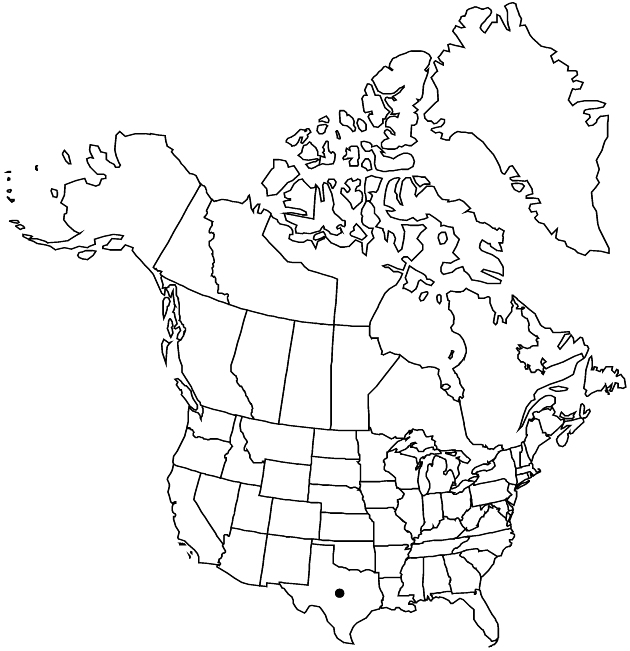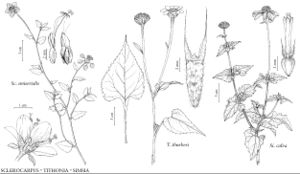Sclerocarpus uniserialis
Biol. Cent.-Amer., Bot. 2: 164. 1881.
Illustrated
Basionym: Gymnopsis uniserialis Hooker Icon. Pl. 2: plate 145. 1837
Synonyms: Sclerocarpus uniserialis var. austrotexanus B. L. Turner
Treatment appears in FNA Volume 21. Treatment on page 137.
Stems often densely hairy (hairs whitish, pustule-based, antrorse-appresssed, stiff). Leaf blades 2–5 cm, margins toothed mostly distally, apices acute. Peduncles 3–10 cm. Ray laminae rotundly elliptic, 5–15 mm. Disc corollas usually yellow with reddish veins (sometimes purple). Cypselae: perigynia brown, ± warty. 2n = 24.
Phenology: Flowering late summer–winter.
Habitat: Disturbed sites, caliche, limestone, and sandy soils
Elevation: 0–300 m
Distribution

Tex., Mexico, Central America (Guatemala).
Discussion
Of the four varieties sometimes recognized within Sclerocarpus uniserialis, only var. uniserialis and var. austrotexanus B. L. Turner occur within the flora area. Variety austrotexanus is said to differ by having the disc corollas longer and more uniformly purple and by growing mainly on dunes.
Selected References
None.
Lower Taxa
None.
